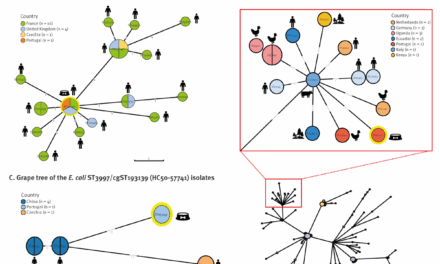University of Nottingham Study Highlights the Dark Side of Digital Work Environments
Fear of missing out (FoMO) has emerged as a significant risk factor for employee mental health, contributing to increased stress and burnout, according to new research from the University of Nottingham. The study, conducted by researchers from the Schools of Psychology and Medicine, sheds light on the negative effects of the digital workplace, particularly in the context of information overload.
The study, published today in SAGE Open, analyzed survey data from 142 employees to explore the “dark side” of digital work environments. It found that employees who are anxious about missing out on information and are overwhelmed by the sheer volume of it are more likely to experience stress and burnout. Elizabeth Marsh, a PhD student from the School of Psychology who led the study, emphasized the importance of considering these potential downsides of the digital workplace, especially given the rise of hybrid working models since the COVID-19 pandemic.
“The digital workplace is now recognized as a key strategic asset in organizations that enhances worker productivity and flexibility,” Marsh stated. “However, the potential downsides in terms of worker well-being also need to be considered, especially given the proliferation of digital communication channels and tools since Covid.”
FoMO, traditionally associated with social media, is defined in this research as the anxiety related to missing out on important information, updates, and opportunities for social interaction within the workplace. The study reveals that this form of anxiety is now extending into professional environments, exacerbated by the constant influx of information through emails, intranets, and collaboration tools.
The research participants were surveyed about their experiences with various negative effects of the digital workplace, including stress, information overload, anxiety, and FoMO. The results indicated that concerns related to information—both the fear of missing out on it and the feeling of being overloaded by it—are particularly harmful to employee well-being. These concerns not only directly impact mental health but also contribute to overall stress levels associated with digital work.
“The glut of information flowing through channels such as email, intranets, or collaboration tools can lead workers to worry about missing out on it as well as succumbing to overload as they strive to keep up,” Marsh explained. “To help people cope with information overwhelm, serious and sustained attention should be given to both optimizing information management and supporting information literacy.”
The study also offers practical suggestions for employers. It recommends investing in practices that optimize the amount and flow of information to employees and highlights the need for HR departments to consider policy and training options that support better information management. These measures could enhance both well-being and productivity in the digital workplace.
Dr. Alexa Spence, Professor of Psychology at the University of Nottingham, underscored the importance of thoughtful job and workplace design in the digital age. “Consideration of the digital workplace in work and job design is essential to not only employee productivity but also well-being in modern organizations,” she said. “Where this is lacking, elevated stress and burnout as well as poorer mental health may result. Our findings indicate the information ecosystem as an important area for attention both inside organizations and among the research community.”
The research was funded by the Economic and Social Research Council (ESRC) through the Midland Graduate School (MGS), highlighting the growing concern over the impact of digital work environments on employee mental health. As digital workplaces continue to evolve, this study serves as a crucial reminder of the need to balance productivity with well-being.











